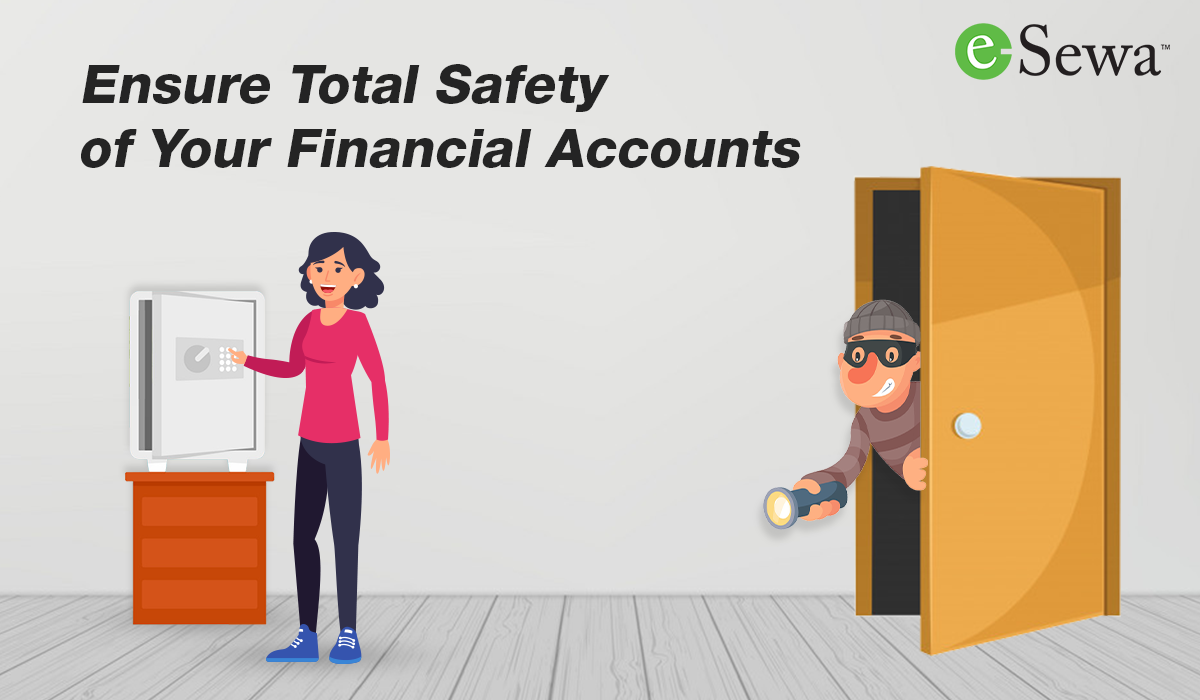Follow these simple steps and you will be safe against all kinds of financial fraud
The risk of a fraudster hacking into your financial accounts is very real. However, there are a few simple steps you can take to minimize the risk of losing any money.
Here are some rules for keeping your money safe:
- Never share your One Time Password (OTP): Your One Time Password (OTP) is the first line of defense against potential fraudsters. DO NOT share your One Time Password (OTP) with anyone other than loved ones under any circumstances.
Most banks and wallet companies will automatically send you SMS alerts when you make a purchase, pay or withdraw money using their payment platform. Please subscribe to these instant alerts — it can be annoying at times, but its important.
- Never share your Password: Don’t give your Password/PIN to anyone and don’t write it down anywhere. If you must write them down, store your list in a secure and private place.
Be vigilant when you shop online at public places to ensure you are not accidentally revealing your password to anybody.
- Never share your Reset password link: Your reset password link is a powerful tool for fraudsters who have secured your email ID through nefarious means like phishing or vishing. Please ensure the security questions for your account are strong and consistent. A strong password is useless if a fraudster can answer all your security questions after a quick trip to your social media accounts.
Change your passwords and PINs regularly — that way you’ll make it harder for any fraudster to access your information.
- Don’t make financial transactions on open public networks: Unsecured Wi-Fi connections provide hardly any anonymity when compared to secure and encrypted wireless networks or your telecom company’s data connection.
Most public hotspots in public areas like airports, hotels and restaurants lower their security standards so it becomes easier for guests and travelers to access and use these networks. That makes it easier for fraudsters to eavesdrop on these networks and try to intercept your information.
- Set strong and unique passwords for every account: Great password security is one of the easiest ways to protect your account. Use strong passwords and PINs that contain both numbers, letters and symbols.
Create a unique password for every account. That way, one data breach won’t put all your accounts at risk.
- If a fraudster can’t get your Identity information or account number, the next best thing is your name and email address. That’s exactly what they launch phishing attacks.
They will call/e-mail you claiming to be from a real company with fake offers, claims of you winning a luck draw or saying there has been a security breach at their end and they need your name and e-mail address.
Remember, no legitimate company will call you if you have not specifically raised a concern. Also, don’t fall prey to suspicious Facebook or WhatsApp messages asking you to transfer money to certain eSewa accounts.
- Use apps wisely: If you use mobile apps on your smartphone to access your financial accounts, be sure to password-protect your device.
Be aware of free software because it is usually accompanied by other software that may be spyware. Every time you download apps or files from an unknown source, you risk loading malicious programs on your phone. Only download legitimate and credible apps from the Google Play Store and Apple Store
The Bottom Line: Online payments are of great convenience. However, a little bit of vigilance on your part and some healthy habits can go a long way to ensure an amazing experience.








